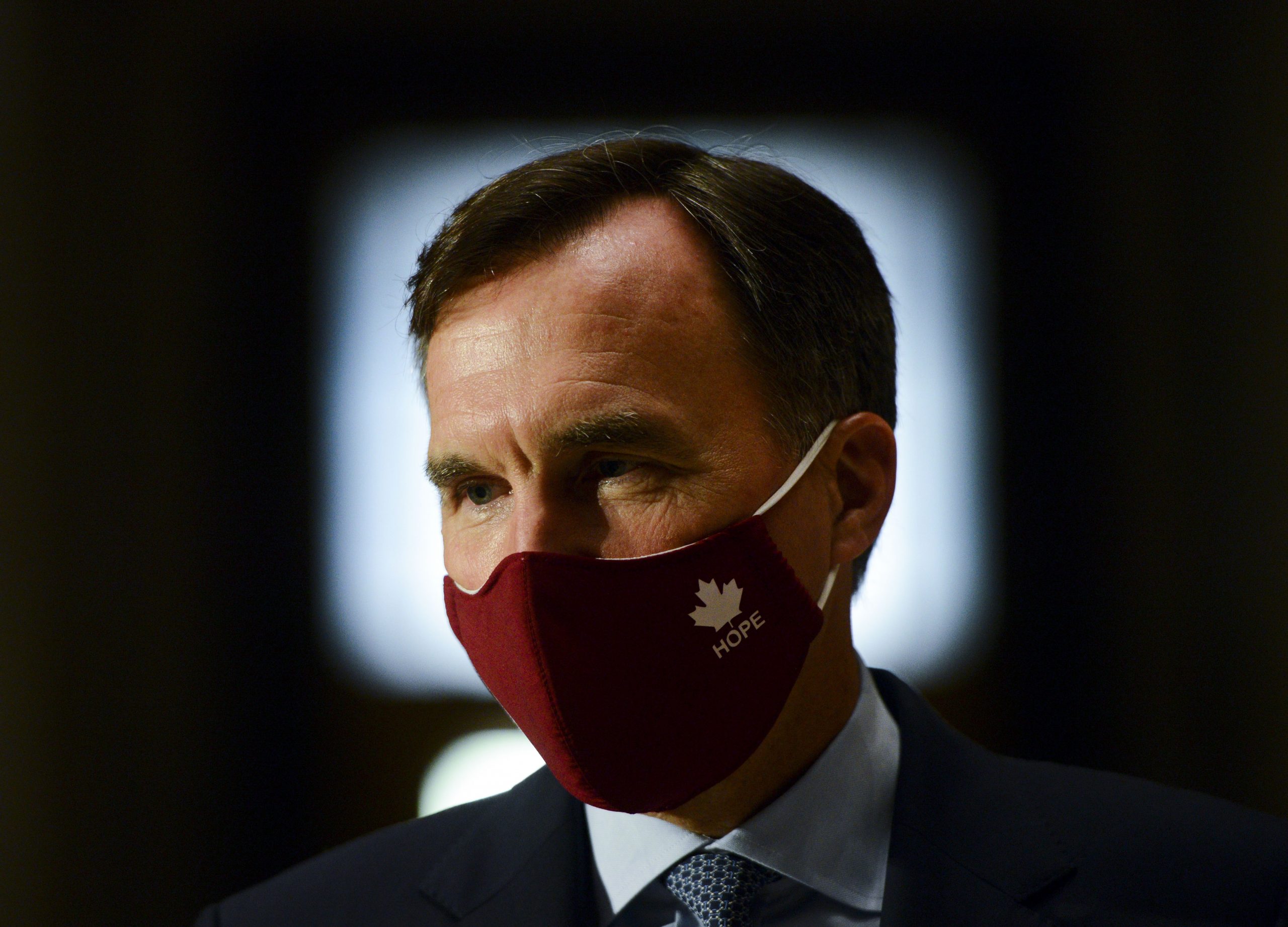OTTAWA — Fixing the social and economic gaps that left women, young people and racialized Canadians to suffer the biggest economic blows from the COVID-19 pandemic is a top priority in the recovery effort, Finance Minister Bill Morneau says.
Morneau delivered a “snapshot” of the federal finances Wednesday, for the first time since the pandemic brought much of Canada’s economy to its knees.
In the update, he said the government is well aware some segments of the population are hurting more than others.
“This crisis has exposed and amplified many inequalities in Canada,” Morneau said.
The same people have in many cases also been affected more by the virus itself.
Women, youth, low-wage workers, racialized Canadians, Indigenous people and new immigrants all saw higher rates of job loss or reduced working hours and are also seeing slow, and in some cases no, benefits as the economy begins to recover.
Jobs in sectors dominated by men, such as construction and manufacturing, were faster to come back than those in service industries, tourism, and accommodation, where women and immigrants tend to be employed in bigger proportion.
New Canadians in particular have seen very little job recovery thus far, the report says.
Businesses owned by women and racialized Canadians were more likely to report drops in orders and clients, and a higher need for rent relief.
Women were also hit harder by the closing of schools and daycares, with women who have kids under the age of six reporting a significantly larger decline in hours worked than women with no children or older ones.
“Going forward, anything we do must be about growth, resilience, and creating opportunity for those who were most impacted by this crisis,” said Morneau.
“This pandemic has identified clear gaps and it’s giving us a chance to reset.”
Exactly how he plans to do that is not clear. The government has said some of the $14-billion aid package offered to provinces to help them safely reopen their economies needs to include child care investments.
“We’ve been very clear that having access to child care is going to be critically important for us to get back to work,” Morneau said in a news conference with reporters. “Women have been harder hit through the course of this pandemic and our measures therefore need to consider that challenge.”
But a month after Ottawa put the $14 billion on the table, the provinces have not yet accepted Ottawa’s requirements for getting access to that money.
There is also little information about how the government intends to try to level the economic playing field so the gaps that led to inequalities going into the pandemic are closed.
This report by The Canadian Press was first published July 8, 2020.
—With files from Jordan Press
Mia Rabson, The Canadian Press













